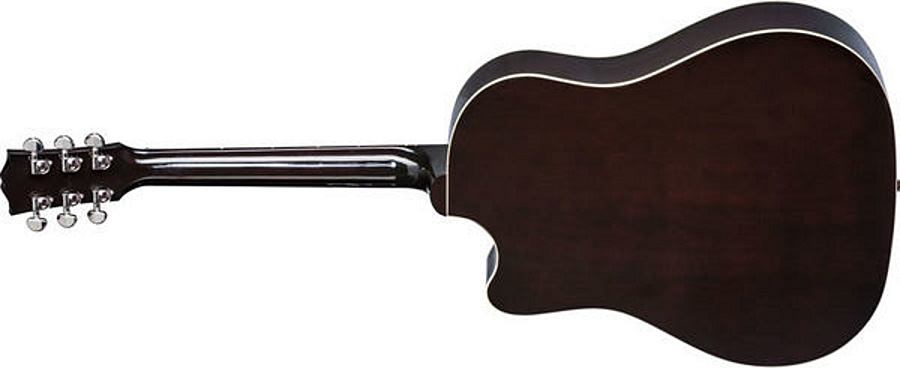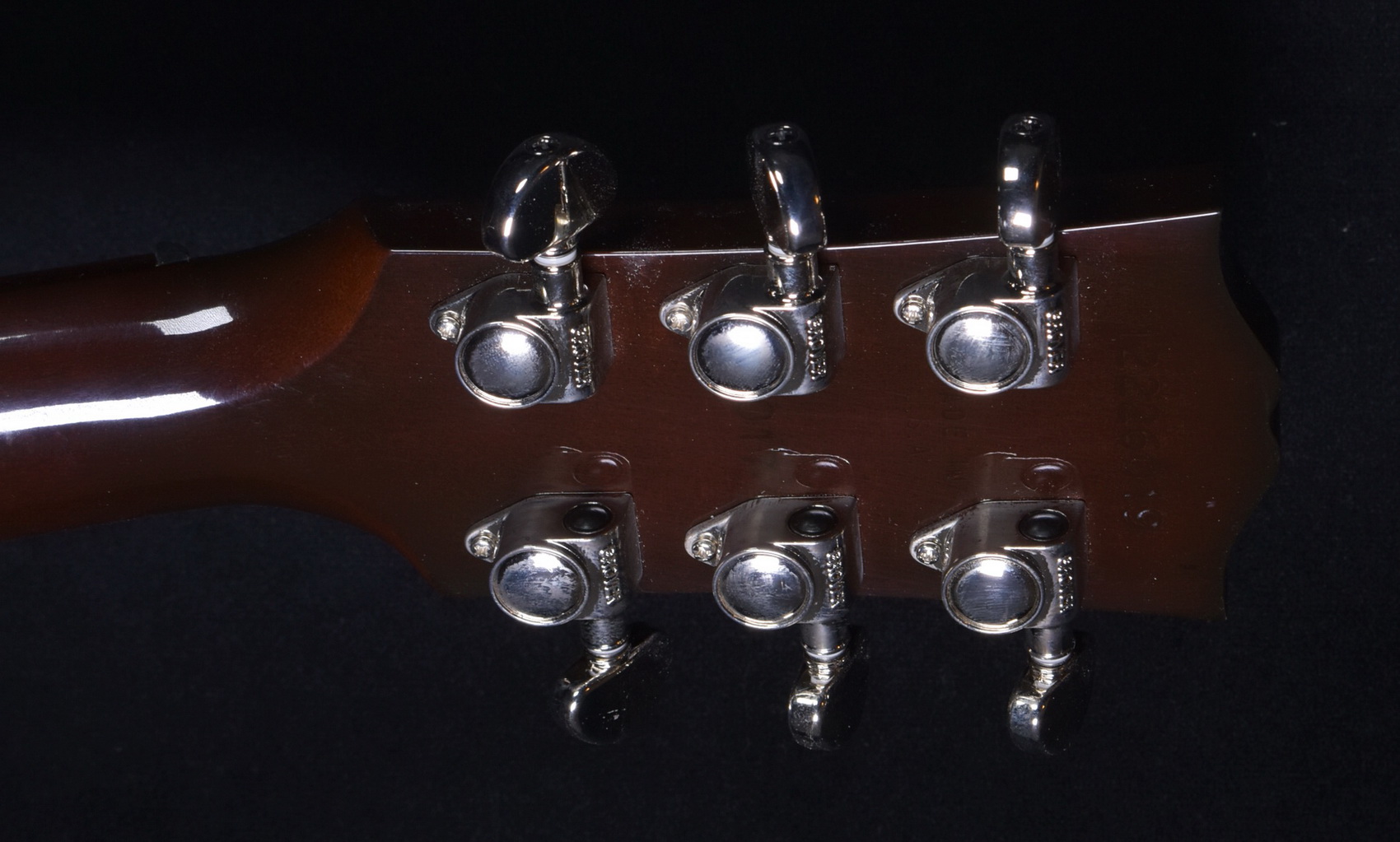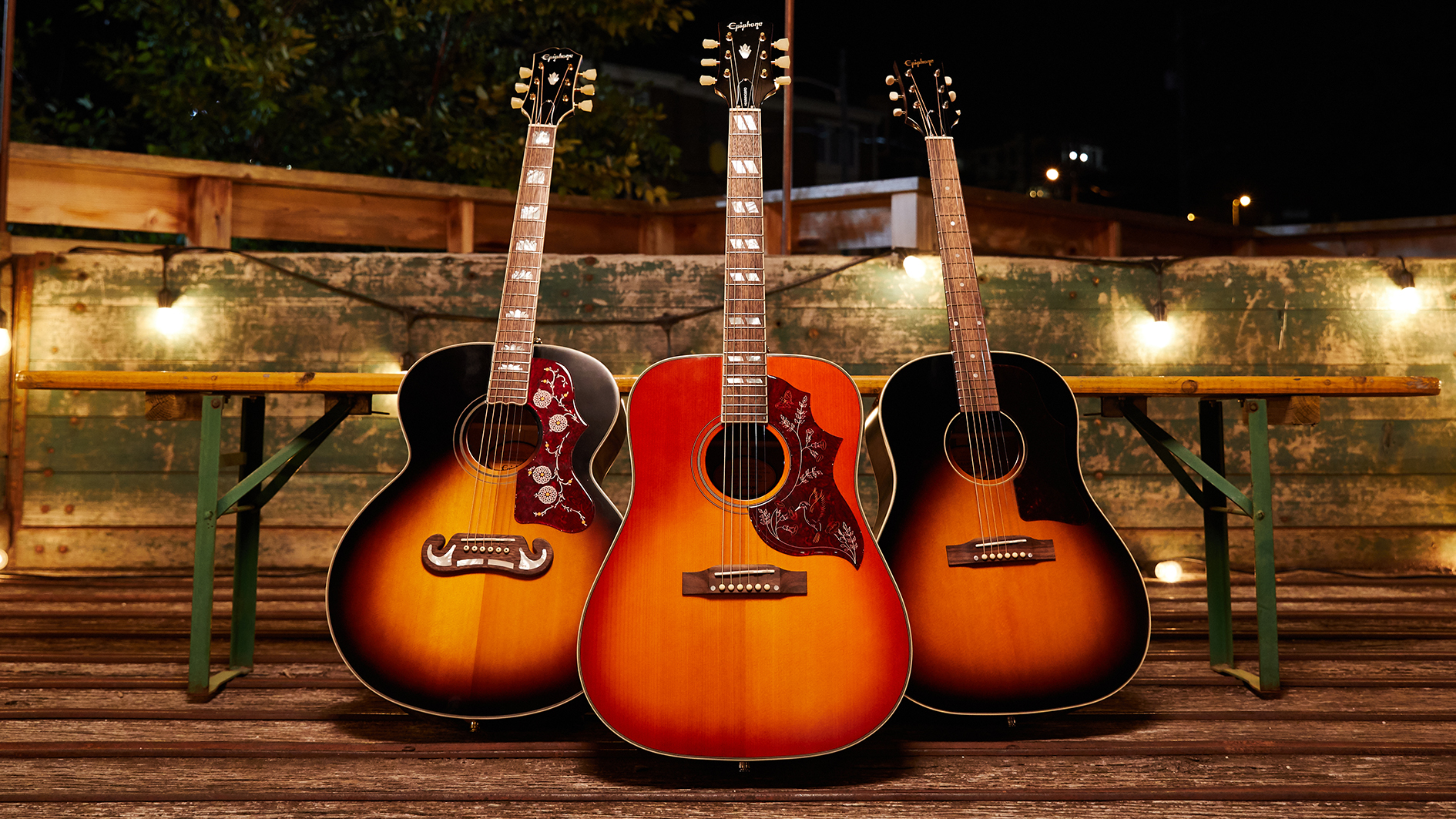
It might be our ears, but this one sounds a little more widescreen and slightly warmer than the 45 model.

The G-Writer lives up to its dreadnought personality with a fortified midrange and lashings of volume and presence. Alternatively, you could always rely on the front-of-house soundperson. The lack of a tone control here may mean that you’d need some outboard gear – a preamp or DI with added EQ controls – if you were intent on playing live. This particular pickup comprises an under-saddle sensor that is, according to LR Baggs, “as thin as a human hair” and has a single volume control secreted in the bass side of the soundhole. What extras has moving up to the $/£1.5k price bracket given us? A cutaway for starters, fretboard position markers that Gibson calls “single bar”, and also an LR Baggs Element Bronze pickup. If you’re wondering what the inspiration for the G-Writer’s particular body shape comes from, it’s Gibson’s Songwriter acoustic. Just like its sibling, there’s plenty of volume on hand, too.

While the clarity is still there, there’s an extra helping of bass here that doesn’t muddy up, even with some heavy-handed strumming. If pressed, we’d say that the neck profile is very slightly deeper and the sound is definitely more ‘big bodied’. Innovation or novelty? Let’s find out.īased on Gibson’s J-45 workhorse, at least in terms of general shape, the G-45 moves up a notch – and if a bit of the old dreadnought thump and thunder is what you’re looking for then stay tuned.Īs we’ve already pointed out, construction details are the same throughout this quartet, and so it’s no surprise that this guitar feels similar to its little brother. So, not only are we looking at a new range of Gibson acoustics, we’re also exploring the whole player port idea into the bargain. Each model offers artists and players of all levels an exciting new playing experience with the reliability, performance and iconic design you expect from Gibson.”

Mat Koehler, head of product development, Gibson Brands, told us this: “The Generation Collection brings something new to our acoustic guitars while staying connected to all the techniques and philosophies that make the originals so great. You can see his blueprint for the ‘Modern J-45’ here on the left the player port might have been in a different location back then, but the idea was certainly looked at, even if it didn’t reach fruition the first time around. McCarty is someone who needs no introduction as far as guitar design is concerned, having aided the development of iconic models such as the Les Paul, ES-335, Explorer, Flying V and even the tune-o-matic bridge. Gibson tells us that the idea of putting a player port on its acoustic guitars came from Ted McCarty way back in the early 1960s.


 0 kommentar(er)
0 kommentar(er)
